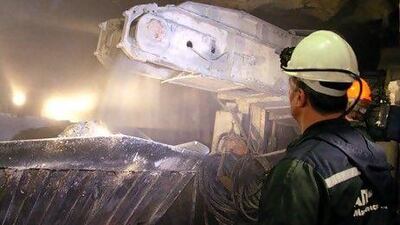In 1861, two Dutch brothers stumbled upon diamonds on their farm in South Africa, sparking a chain of events that led to the establishment of the world's most successful cartel.
Unwilling to endure the stress of protecting their valuable find, the brothers - Diederik Arnoldus and Johannes Nicholas De Beer - sold the land. They moved on, but their family name - with an "s" added - has remained associated with the diamond trade via a company that subsequently bought the site.
De Beers has been accused of building a monopoly and controlling the supply of diamonds for decades by mining its own gems while also buying diamonds from other producers. In 2004, The New York Times reported, the company agreed to plead guilty to criminal price fixing in order to return to the market in the United States.
Its "central selling organisation" controlled about 90 per cent of the world's diamonds at one time, according to a Bloomberg Businessweek report. Historically, the company used this hegemonic position to force producers to fall in with its strategy.
For instance, if diamonds were discovered in Zambia and the producers did not want to sell through De Beers, then, when De Beers was really powerful, it could say "really?" explains Jean-Pierre Benoit, a micro economist at London Business School.
He adds that De Beers would have then threatened to flood the market using its stockpile of diamonds to drive prices down.
This kind of strategy, in addition to its successful "diamonds are forever" advertising campaign, helped De Beers to keep prices artificially high, according to Mr Benoit, although the gems were not particularly scarce.
In a statement, De Beers said, “Diamonds are most definitely rare; and getting rarer.”
About a decade ago, De Beers lost its grip on the trade with the emergence of independent mines.
Mr Benoit says theoretically this meant that diamond prices should have dropped, and a few years ago they did. "In the last three years, diamond prices fell by about 20 per cent," says Ashraf Ahmed, the managing director of Diamond Infinity, a dealership in Dubai.
But diamond prices have since recovered, he says. And Mr Ahmed expects them to increase further because, in a twist, the supply of the gems finally seems to be dwindling.
"We have been hearing a lot of rumours that the supply of diamonds over the next 10 years is going to diminish, [but] not diminish to zero," says Mr Ahmed. "But it will be very restricted, because the supply coming from the mines is slowing down now." he adds.
No major new diamond deposits have been discovered since a 1997 find in Zimbabwe, according to a Reuters report.
The appetite for diamonds in China and India will fuel demand for the gems by more than 6 per cent a year over the next decade, far outpacing supply, according to a report released in December by the management consultancy Bain & Company.
News of the apparent slowdown is making many buyers nervous, and has led to some larger-than-normal purchases by Diamond Infinity customers of late. An investor in Kuwait has just bought a pair of four-carat gems, for example, and the company recently helped an investor raise a US$15 million (Dh55m) diamond fund.
De Beers's biggest competitor now, according to Mr Ahmed, is Kristall, a Russian government-run factory.
Diamonds from Russia tend to be a better colour and clearer because they have been formed under ice in Siberia.
"(Kristall has) been around for quite some time. I think the Russian government started to exploit the diamond market only about 20 years ago," Mr Ahmed says, "and then the fruits came about a decade back."


